Alastair [Thursday, 18th January]: As I start to write this, I am seated next to Susannah at her departure gate in JFK Airport. She leaves in an hour and a half. I leave in two and a half hours on a different flight. We are both flying to Heathrow Airport. [Susannah: Look. I said I was sorry.]
The last two weeks we have been in the US. After a couple of days in New York, I went to Birmingham, Alabama for the Epiphany term of the Theopolis Fellows Program. I arrived in Birmingham on the Saturday evening. On the Sunday morning, I attended Immanuel Reformed Church, a new church plant in Gardendale, pastored by Peter Leithart. In the evening, the program began with fellowship in the Leithart’s house.
The Fellows Program, which has residential periods in July and January and online training in the form of ‘Pesher groups’ in the intervening months, has long been a highlight for me. It is the Theopolis Institute’s flagship program, providing extensive training in the reading of Scripture, especially in the July residential term and the online groups that follow, and training in liturgy, music, and counselling, particularly concentrated in the January term.
As in previous years, the number of fellows was limited. The smaller size of each cohort makes it possible for them to form strong friendships among themselves; we also get to know many of them very well over the program. Each day is packed with activities, with the evenings affording opportunity for relaxed fellowship over meals. Laura and Grace Clawson’s incredible cooking continues to be a highlight of the Program. Unsurprisingly, given the strength of many of the connections that develop, we see many former fellows in various Theopolis events and other contexts.
I continue to be impressed and encouraged by the calibre of the fellows. Most of them are either in some form of pastoral ministry, or in training for it. Their commitment to deepening their knowledge and developing their facility in Scripture, theology, liturgy, and Church music is inspiring, as is seeing my Theopolis colleagues teaching them. John Ahern, Jeff Meyers, Peter Leithart, Paul Buckley, and David Field—whom I was privileged to see again in person after a few years—are superb pedagogues and wonderful Christian men.
Each of the five days of the course were punctuated by matins, sext, and vespers services, held in the beautiful sanctuary at Third Presbyterian. The sung liturgy, especially for the vespers service, is exhilarating, even though our usual cantor, Caleb Skogen, was not with us this term.
On Tuesday, a friend and former student took me to the Birmingham Museum of Art, which I hadn’t seen before. I was delighted to discover that they have an extensive collection of Wedgwood china. The Wedgwood factory is just down the road from where we live in Stoke-on-Trent—we have walked or cycled there on several occasions—so it felt like a bit of home.
Besides the Wedgwood, the Museum’s collection was well worth seeing. My time is usually so packed when I am in Birmingham that the opportunity to see a little more of the city itself was very welcome. That said, every time I visit places like Birmingham there are at least a half dozen people I’d love to catch up with, but don’t have enough time within which to do so.
Over the week, I taught on Baptism, the Eucharist, Liturgy and our Labours, and Liturgy, Ethics, and Politics. Besides the classes, I also recorded some videos about controls upon our interpretation of Scripture, something that we often get asked about in Theopolis. I also started teaching my ‘The Bible and Politics’ course on Friday morning.
On Saturday afternoon, I flew over to Greenville, to spend a few days at Davenant House. I preached on the Sunday morning, attended a group book study on C.S. Lewis’s book, Miracles, and caught up with Joseph Minich, and with Brad Littlejohn and his family.
Davenant recently received a generous grant from the Lilly Endowment to help to establish the ‘Congregational Life in a Digital Age’ project. Much of my time at Davenant House was spent brainstorming for the project. The project is taking shape in exciting ways: it was especially helpful on Tuesday evening to spend time talking with local pastors who will be participating in it over the next couple of years.
On Monday, Davenant House hosted a question-and-answer session with me. The questions and conversation very quickly developed momentum on the subjects of technology, of media, and of gender. Interestingly, I was not asked any Bible questions: quite a change from what I am used to! I think the concern among the group about technology and media-related issues augurs well for the ‘Congregational Life in a Digital Age’ project. From AI and automation, to VR and AR, to video games and gamification, to online dating and online gender relations, recent and emerging technologies provoke challenging and often unsettling questions about our being and identities, our relationship with our world, human community and politics, and human agency in a digital age. Navigating such matters with insight and prudence, though essential, is increasingly difficult and daunting. I’m currently reading Antón Barba-Kay’s brilliant and sobering A Web of Our Own Making: The Nature of Digital Formation, perhaps the best treatment of the digital age I’ve encountered for some time.
On Wednesday morning (yesterday, as I am writing this), Brad, Joseph, and I recorded a series of talks on the Reconstructionist movement and its complicated legacy. The more I look at current movements, trends, conversations, actors, and developments, the more obvious the importance of the Reconstructionist movement in the 1970s to 1990s becomes. Joseph and I went to visit some former Davenant friends on the way to the airport.
We have a busy few days ahead of us. I am flying overnight tonight—I hope to be able to get some sleep on the flight, but I don’t usually sleep well while flying. I will be teaching an online class—the second of my ‘The Bible and Politics’ course—for a couple of hours shortly after we arrive back tomorrow. I am rather dreading this! The UK Davenant Convivium is in Oak Hill on Saturday, so it didn’t make sense to go back to Stoke-on-Trent. We will stay with a friend overnight, attend the Convivium, stay another night, and then spend the day in London, taking the train back to Stoke in the evening. I expect that we will be utterly exhausted!
Alastair [Monday, 22nd January]: My class on Friday went very well, especially considering that I got no more than thirty minutes’ sleep on the flight. I arrived at our friends’ house about twenty minutes before the class, set up in their living room, and then taught for two and a quarter hours. Susannah and I arrived into different terminals in Heathrow, so our paths didn’t cross again until she arrived there, about ten minutes after I did. That evening, we stayed with another friend in the city.
Saturday was the UK Davenant Convivium, at Oak Hill College. Oliver O’Donovan was the keynote speaker (‘The Children of This Age and the Children of Light: A Biblical Apologia for Political Theology and a Critique of Its Traditional Defenders’) and Graham Shearer (‘Contemporary Politics and the Crisis of the Spiritual Sense’), Daniel Caballero (‘The Political Theory of John Owen (1616-1683): Law, Government, and Liberty’), and Imogen Sinclair (‘The Anticulture and the Crisis of Metaphysics’) also spoke.
Oliver O’Donovan is the greatest living political theologian and Christian ethicist and his talk was dense with insight and will reward multiple listens (recordings of the conference are now available). I took extensive notes on all the talks, each of which also stimulated a lot of subsequent thought and conversation—I’ll share some more general thoughts below.
As is typical for such events, the highlight was the opportunity to spend time with some old friends, to make some new ones, and to have several conversations that are likely to lead to future collaborations or connections. After the event concluded, a small group of us joined the speakers for a meal (unfortunately, plans for a more open meal had to be cancelled as too many people were interested).
Yesterday morning, we attended church at Emmanuel North London Church. They will be hosting a Psalm Roar event next weekend, which we might possibly attend, if we can build up the energy for another event and more travel!
After a fellowship meal with the church, we went into the centre of London and visited the Victoria and Albert Museum, probably my first time back in nearly ten years. We started off with an exhibition on the Arts and Crafts movement, and also spent a while looking around the Cast Courts, which contain a cast of Trajan’s Column and of Michelangelo’s David, among several other things. Trajan’s Column is truly awe-inspiring; it is so large that it had to be divided into two. Susannah insisted that we visited the Re:Imagining Musicals exhibition too.
The journey back to Stoke-on-Trent yesterday evening was not uneventful. Storm Isha was about to hit, so most of the later trains were cancelled, including ours. We managed to get an earlier train to Wolverhampton, from where we were going to transfer to Stafford, where my parents had offered to pick us up. However, waiting on the train in Wolverhampton, we were told that a tree had come down on the line ahead, so our train was delayed indefinitely. After a half hour with no indication of progress, we ended up having to get a taxi to Stafford Station.
We are now back in Stoke-on-Trent; after all the travel of the past fortnight, it feels amazing to be home again! While the last few days were exhausting, I’ve passed through the jetlag and am now turning to catch up on the huge backlog of work that has been building up while I was on the road.
Miscellaneous Thoughts on the Convivium
In his keynote lecture, Oliver O’Donovan drew attention to the elevated risks of moral harm that can attend the business of politics. Like the activity of money-making relative to money, power’s applicability to such a range of ends makes politics peculiarly prone to dishonesty. The business of politics can become driven chiefly by the pursuit of power, and greater controlling ends and virtues can be forgotten. Staying in or getting into power—or keeping the other side out of power—can eclipse the greater end of politics, which is that of securing communities through ‘making friends’. While there is a constant danger of forgetting what politics is for, without the actual power to do things, politics cannot get off the ground, so the moral dangers of the pursuit of politics will always be there.
O’Donovan used Luke 16:1-13, the Parable of the Dishonest Steward, as the springboard for his lecture and drew attention to its focus upon money. It is in money that we see the epitome of instrumental means, something with vaguely defined utility, but no inherent, value. Money thus also has an especial relationship with prudence, as the management of ‘means’. The inherent danger of money and its pursuit, on account of money’s ambivalence relative to ends and the tendency of the imperatives of money-making to dull us to greater and controlling ends is, of course, at the heart of the biblical warnings about the love of money: ‘You cannot serve God and money.’ O’Donovan’s discussion recalled John Ruskin’s critique of money-driven notions of value and wealth in Unto This Last.
Among Christian idealists, O’Donovan observed, politics (like money-making, for that matter) can be regarded as merely another area of human activity, with little sense of the heightened moral risks inherent to it. While O’Donovan focused upon the danger of means becoming ends, Moshe Halbertal and Stephen Holmes have remarked upon dangers moving in the other direction in their The Beginning of Politics: Power in the Biblical Book of Samuel—the purity of David’s devotion to the Lord was in danger of being compromised when it became politically expedient for him too. Higher ends can easily be instrumentalized by those who pursue power. Both Saul and David illustrate the intense moral dangers that attend power and how even those who seem exemplary can be corrupted or fall prey to them.
O’Donovan considered the way that politics is concerned with alien matters, is marginal to living human experience, and presents a frame for the real and familiar world. The law intrudes and regulates, it deals with us impersonally through a veil, as it were (or through a blindfold). Using the illustration of Moses’ veil in Exodus, O’Donovan made the point that Moses the lawgiver was not ‘good ol’ Moses’: as the lawgiver, Moses’ individual personality was veiled.
Due to the alien and marginal character of politics, we can easily project things onto politics and politicians. In response to a question of mine after his talk, O’Donovan likened our perception of politics to that of a great demonic war in the heavens above us, seeing this as a distortion resulting from the ‘impersonality’ and the alien character of politics and the law. The dangers here are greatly accentuated when such a spectacle of political conflict starts to dominate and even mediate more immediate relations. Political theology should demystify this, presenting politics as another form of service by frail and fallible human beings, a form of service that, when functioning well, enables our lives together.
O’Donovan lamented the profound failure of churches to speak with clarity and illumination concerning the character of politics. This failure leaves Christians both susceptible to the mystification of politics and insufficiently alert to its morally corrosive character. We need to be more practised in the sort of prudence that would enable us to make the good compromises that political deliberation requires, without being creatures of compromise, maintaining the authority of God in the realm of political action throughout.
The unjust steward in Jesus’s parable illustrates the shrewd handling of means, exposing the weakness of the ‘children of light’ by contrast. Shrewdness, or prudence, are very important in the handling of money and power, even though the higher value to which Jesus directs his hearers is that of ‘faithfulness’.
O’Donovan’s observations about the inherent dangers of politics help to explain the morally corrosive effects that a preoccupation with politics and culture war have had in many quarters. Those who give themselves too much to politics expose themselves to deep spiritual dangers. Much greater caution and trepidation is needed when we get into politics; like money-making it can be deceptive, distorting, and corrupting. Shrewdness and political expediency can easily squeeze out or compromise Christian faithfulness.
Those who are naive concerning the prudence required by politics, can have an idealism and eschatology that is ill-equipped for the difficult tasks of practical deliberation by which their visions could be pursued effectively. This can leave them politically ineffective, or it can cause them to compromise themselves, unalert to the treachery of ‘unrighteous Mammon’. Inattention to the task of prudence can also make people susceptible to ideology. Along with O’Donovan’s discussion of the distortions to which the political imaginary is prone, this seems to me to be a very timely word, addressing problems that are clearly present at many points of the political spectrum in the Church.
In his talk, Graham Shearer spoke of the loss of the ‘spiritual sense’ in British politics. Politics has become divorced from the spiritual, narrowly preoccupied with the material and that which is quantifiable. Managerialism and secular liberalism carefully maintain a supposed neutrality with regard to ultimate reality, bracketing out all spiritual matters and emphasizing the freedom of the individual over all else.
Shearer contrasted this with a Christian politics, which recognized that things point beyond themselves (the spiritual sense) and the reality of the soul. As Christians, we must exercise the spiritual sense ourselves, something which can inform all areas of our lives. We must pray and labour towards the return of such a spiritual sense more broadly, hoping that one day British politics may itself be a sign of higher spiritual realities.
Without disagreeing with most of Shearer’s description and diagnosis, I was curious that he, to my recollection, made no mention of the coronation. In the coronation, just such a spiritual connection between the Lordship of Christ and the British government was proclaimed and symbolically presented. What other countries in the world have a comparable ritual, one which so explicitly and solemnly presents their government as a sign of higher spiritual realities!
I am reminded of one of my favourite passages from O’Donovan’s book The Ways of Judgment (yes, we will get back to podcasting through it!):
Western civilization finds itself the heir of political institutions and traditions which it values without any clear idea why, or to what extent it values them. Faced with decisions about their future development it has no way of telling what counts as improvement and what as subversion. It cannot tell where “straight ahead” lies, let alone whether it ought to keep on going there… One train of Christian thought that carries apologetic weight in our times is the capacity of faith to display the intelligibility of political institutions and traditions.
This approach contrasts with the typical ‘critical’ posture that Christians (like non-Christians) assume with regard to the institutions and the social order. Such an approach is by no means the only appropriate one, but in the UK it seems that it has a lot more with which it can work.
Imogen Sinclair’s talk touched on some related themes, particularly focusing on the work of Philip Rieff. Though influenced by Freud, Rieff treated repression differently to him. Repression is not merely expedient, but is necessary and good, orienting us to something greater and enabling us to fulfil our true self as social beings (Rieff resists Freud’s alienation of the social self of the superego from the supposedly genuine self of the ego). We have a moral duty to respond to the summons to enter into communion with others in society.
Sinclair went on to discuss the need for what she terms ‘covenantal politics’, implicit mutual commitments between persons, extending forward and backward, constraining atomization and resisting the conceptual polarization of individuals and society—no one is a ‘we-less I’. Without a firm grasp of what we are and what we are for, our politics can easily become spiritually destructive. Referencing Karl Polanyi, she spoke of the danger of the subjection of society to economic ends.
At this and other junctures, there were clear points of convergence between the speakers. O’Donovan’s treatment of the constant threat of the elevation of instrumental means in politics, Shearer’s discussion of the loss of the spiritual sense, and Sinclair’s emphasis upon a regrounding of society in a truer anthropology all seem to be tackling the same problems from complementary directions.
For me, one of the great issues the talks of the day raised for me concerned the need to expand and to enrich our social and political imaginaries in ways that would enable us to escape our preoccupation with the narrow yet alien world of politics and to refuse to allow such a world to become the lens through which we regard so much else. To avoid the distortions O’Donovan identified, to recapture the ‘spiritual sense’ of which Shearer spoke, and to centre Sinclair’s truer vision of humanity, we must find ways of putting the struggles over power that dominate our understanding of ‘politics’ in their place. We need a fuller account of the complex and variegated fabric of our lives together, of our common loves, of socially binding and defining forces beyond the law and state.
In such a fuller account, one thing that might become apparent is that the crisis of the ‘anti-culture’ in British society and our loss of the ‘spiritual sense’, cannot easily be understood apart from consideration of the many ways in which the Church—especially as the Church of England—has formed the fabric of our nation, both people, place, and government (see my discussions here, here, and here). As the nation loses its faith, it will lose much of itself with it. In such a society, a managerialist state, the spectacle of political contestation, and the ideologies that drive it can become a dominant focus of our identities and the object of our hopes. Much—though definitely not all—of our Christian political witness might be that of training us to look beyond Westminster for responses to our social and political crises. Britain’s social life must be re-embedded in realities older, broader, deeper, and higher than anything our weak and muddled government could ever establish or represent.
Recent Work
Alastair:
❧ Kevin Hector, the author of the recent Christianity as a Way of Life: A Systematic Theology, joined us on Mere Fidelity to talk about it.
❧ We are continuing our Deuteronomy series on the Theopolis Podcast with our latest episode, Deuteronomy 22: Forbidden Mixtures, Tassels, and Sexual Immorality.
❧ My series on the book of Revelation with the God’s Story Podcast continues with an episode on chapter 18 and another on chapter 19.
❧ I recorded a series of videos on Reconstructionism with Joseph Minich and Brad Littlejohn. Those videos, along with my series of lectures on wisdom and much more, should be available to members of the Davenant Institute soon. You can become a member here.
Susannah
❧ I wrote a Screwtape! That is, a satire after the example of CS Lewis in his Screwtape Letters. What if Screwtape were to comment on contemporary social media? Check it out in Mere Orthodoxy, which continues to be the publication that I go to with all my most unhinged takes.
❧ I conducted an interview with the artist Makaoto Fujimura, on the idea of cultural repair as an alternative to culture war, and the spiritual significance of the Japanese tradition of artistic repair of ceramic vessels known as kintsugi.
❧ I also wrote a piece on the medieval nun, mystic and polymath Hildegard of Bingen. As always, the Forerunners column in the mag continues to introduce me to astonishingly strange and interesting people: made more themselves, and more strange, as God works in their lives to make them saints.
❧ Those two pieces were part of Plough’s Winter issue; the theme is Repair. Some highlights: Adam Nicolson’s lovely piece on the process of mending his farm in Sussex; Leah Libresco Sargeant on the joy of mending jeans; and Carlo Gebler on the way that repair can happen, and sometimes must, outside our own efforts.
❧ After a hiatus, the PloughCast is back up and running: I recently interviewed rabbi and poet Zohar Atkins on the transformation of the meaning of tikkun ‘olam. Its contemporary sense - the “repair of the world,” often through political means, is continuous with but distinct from the earlier Rabbinic meaning and also the intermediate Kabbalistic meaning. A fascinating conversation.
Upcoming Events
Plough is starting a new initiative: we’re helping our readers practice the community we are all committed to, through a series of Plough Readers’ Meetups across the US and in London over the next couple of weeks. Check out the listings below, and if your area is not represented, and you’d like to help organize one, please do get in contact with me, Susannah, at my work email - sblack.pq@gmail.com - and we’ll get you going.
Details:
❧ If you happen to be in London and open this email and get to this point before 7 pm GMT, join me (Susannah) at The Cheshire Cheese in central London for a Plough readers’ meetup! Go here for more.
❧ Ditto ditto in NYC, ditto before 7 pm EST, head down to KGB Bar’s Red Room for a classic Plough reader’s hangout! Say hi to Lori for me (Susannah.)
❧ But what if you live in Waco, TX? Glad you asked. On Monday the 29th of January, you too can get together with Plough readers at Brotherwell Brewing Company! Also 7 pm. Go here to sign up and get a ticket for a free drink.
❧ And if you’re in Austin, TX, you too can get in on the readers’ meetup action - on Wednesday, January 31, 7 pm, head to Lazarus Brewing Company to hang out with fellow Ploughvians. Go here for more info.
❧ Same day, Wednesday, January 31, 7 pm if you’re in Portland, OR, head to McMenamin’s Power Station Theater & Pub for a meetup. Go here.
❧ And if you’re in the Twin Cities, on Thursday, February 1 at 6 pm local time, it’s your turn - there’s a Plough meetup at Urban Growler Brewing Company! Go here.
❧ Cincinnati gets in on the action on Friday, February 2, 7 pm, with a meetup at For the Life of the World Cafe. Go here.
❧ And there will be a meetup in Durham, NC, on Tuesday, February 6, 7 pm, at the Pour Taproom. Go here.
❧ And another one on February 13th in Boise, ID, at 7 pm. Go here!
Other upcoming events:
❧ If you’re in New Canaan, CT (and why should you not be?) and see this before 7 pm EST, check out a mini-event for our new book, Tears of Gold, documenting the experiences of women in conflict zones, with its author, Hannah Rose Thomas, and Prince Zeid Ra’ad Al Hussain.
❧ On Tuesday, January 30th, in Washington, DC, Hannah Rose Thomas will be speaking about her book at the International Religious Freedom Summit. If you’re in the area, head down to meet her and more Plough folk. Go here for more info.
❧ If you’re a publishing person and at the American Book Association’s Winter Institute, February 11-14, again in Cincinnati, Plough will be present there - come by our table! Go here. We’ll be featuring a newly-restored title from Don Freeman, the beloved author of Corduroy.
❧ Finally, if you’re interested in regenerative/sustainable agriculture, join Joel Sallatin and James Rebanks at Fox Hill, the Bruderhof community an hour and a half up the Hudson from NYC. Long story short, this is the regenerative agriculture dream team and if that’s your thing, you will want to attend, to hear their talks in a place that is attempting to practice their style of regen ag. Go here! There will be barbecue.
❧ Most of Alastair’s work is as an independent scholar, funded by Patreon donors. His primary goal is to create thoughtful yet free Christian material for the general public, most notably his largely-completed chapter-by-chapter commentary on the whole Bible (available here and here). If you would like to support his continuing research, teaching, writing, and other content production, you can do so here.
Much love,
Susannah and Alastair











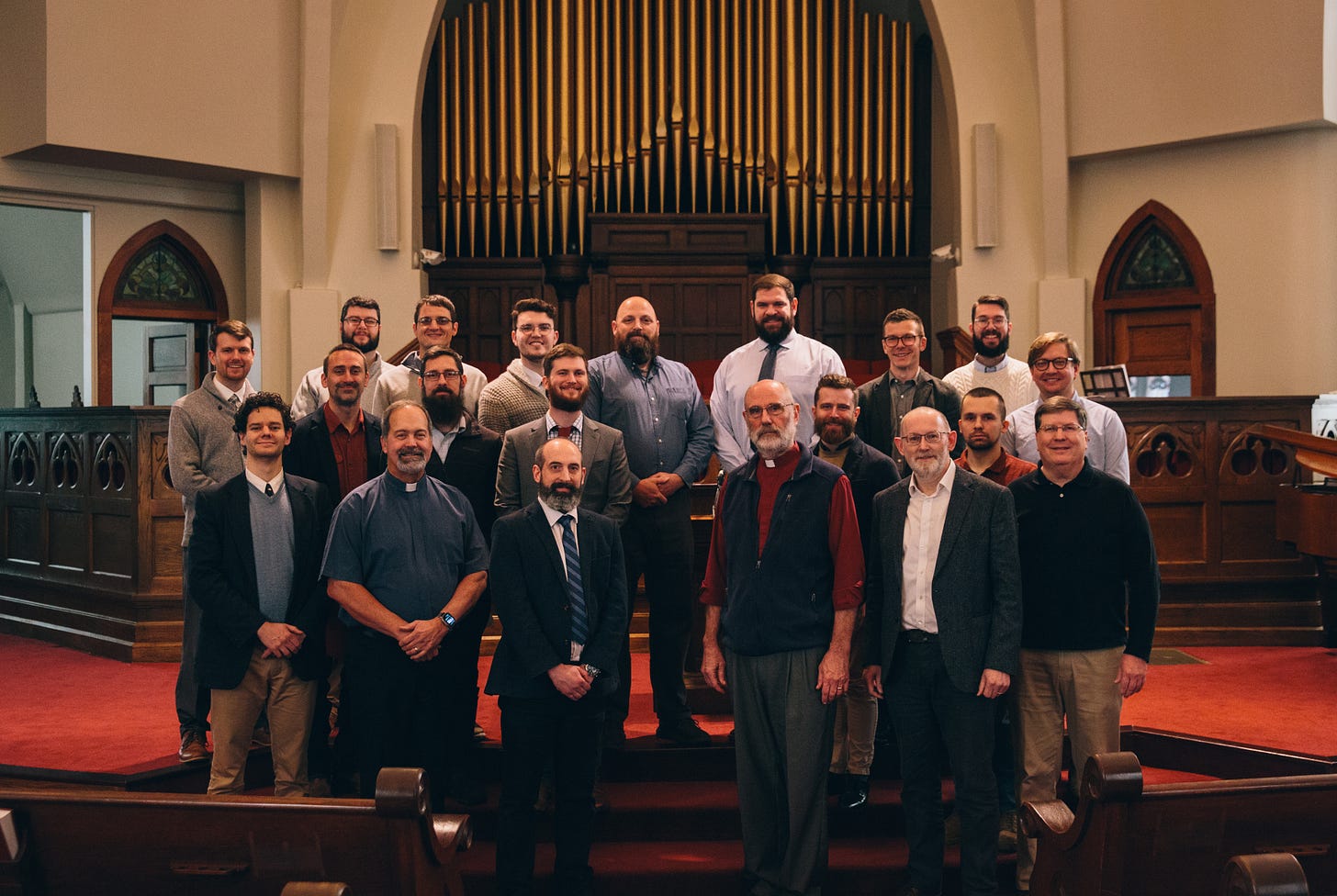









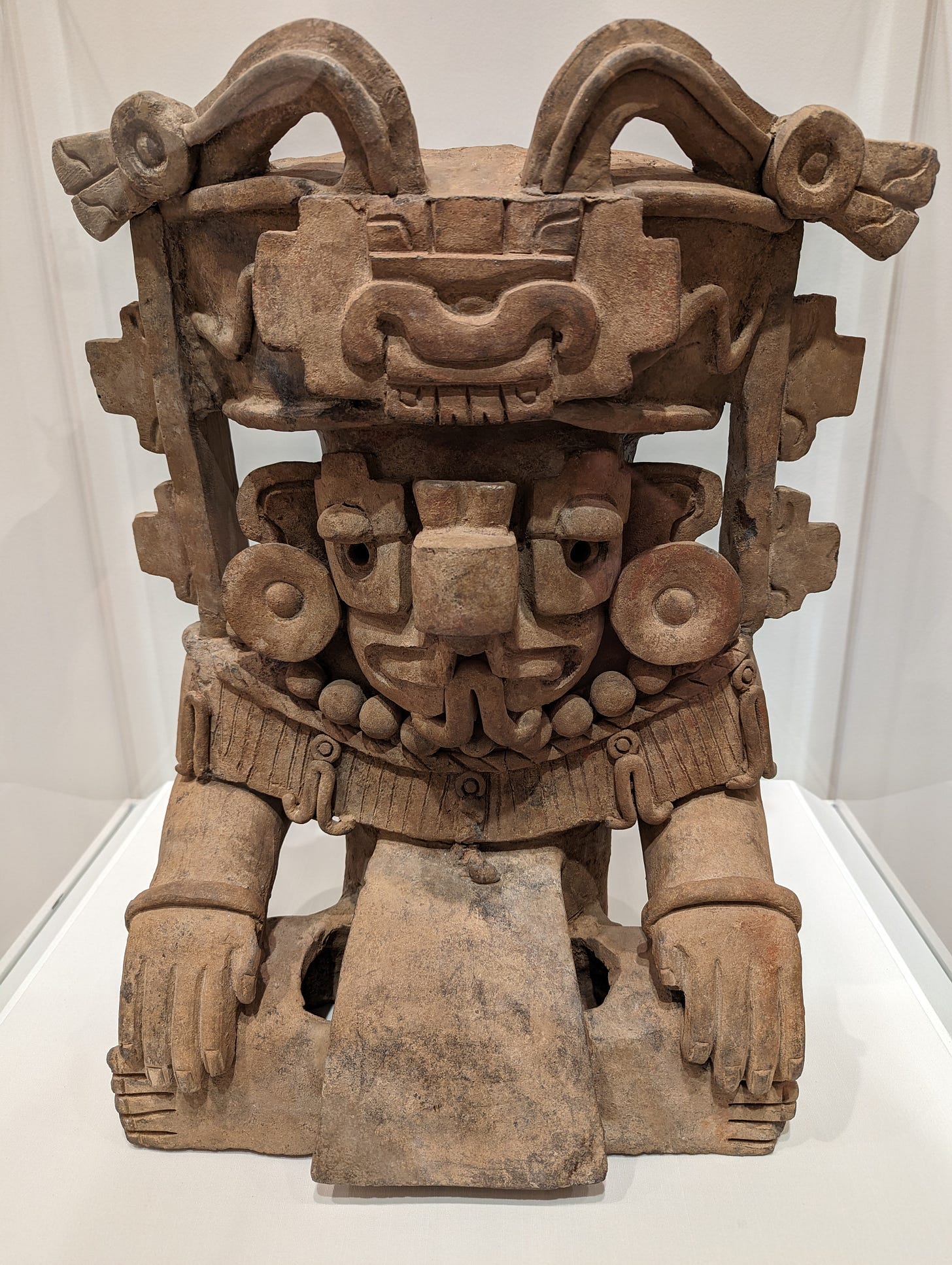






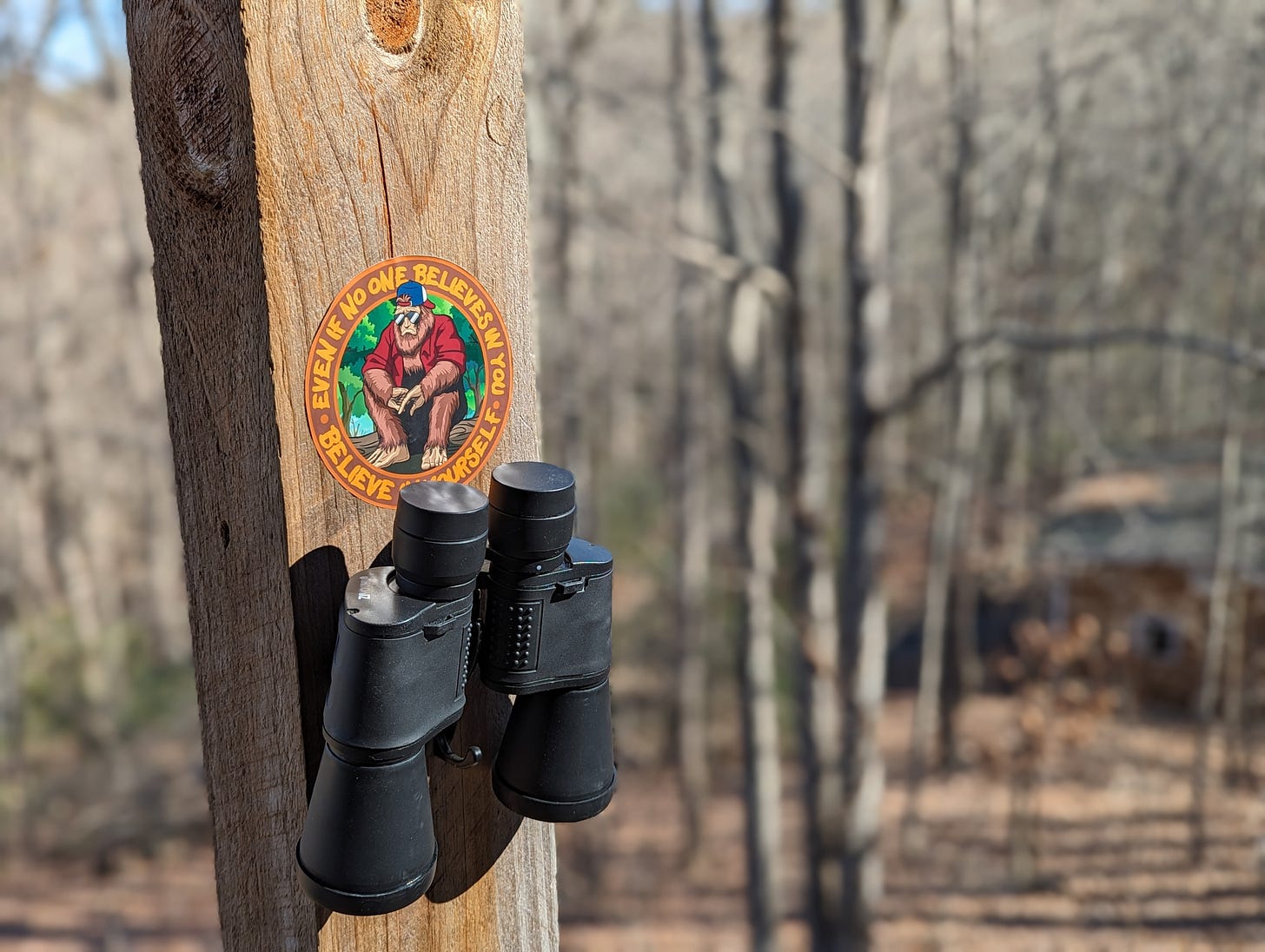












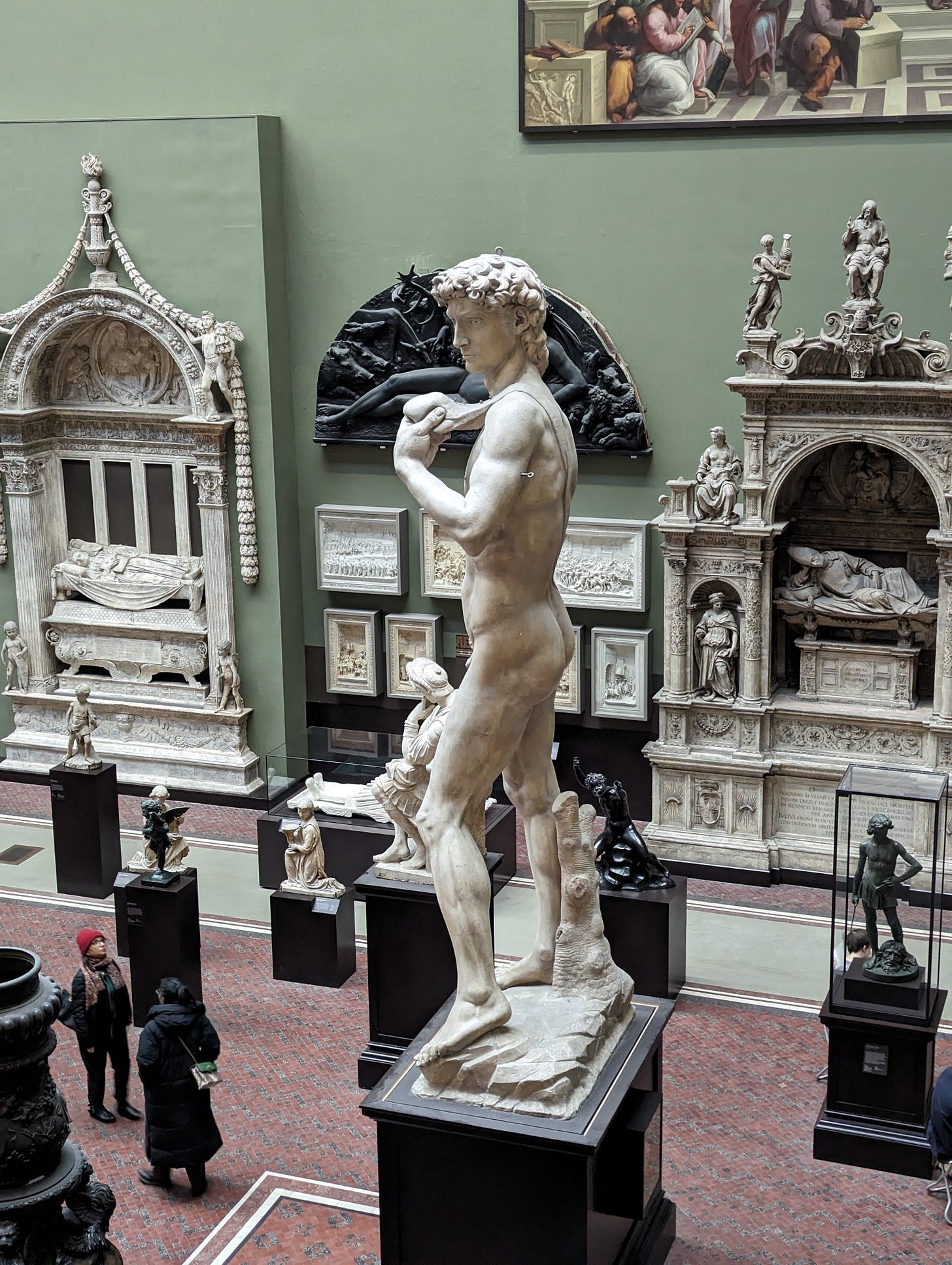
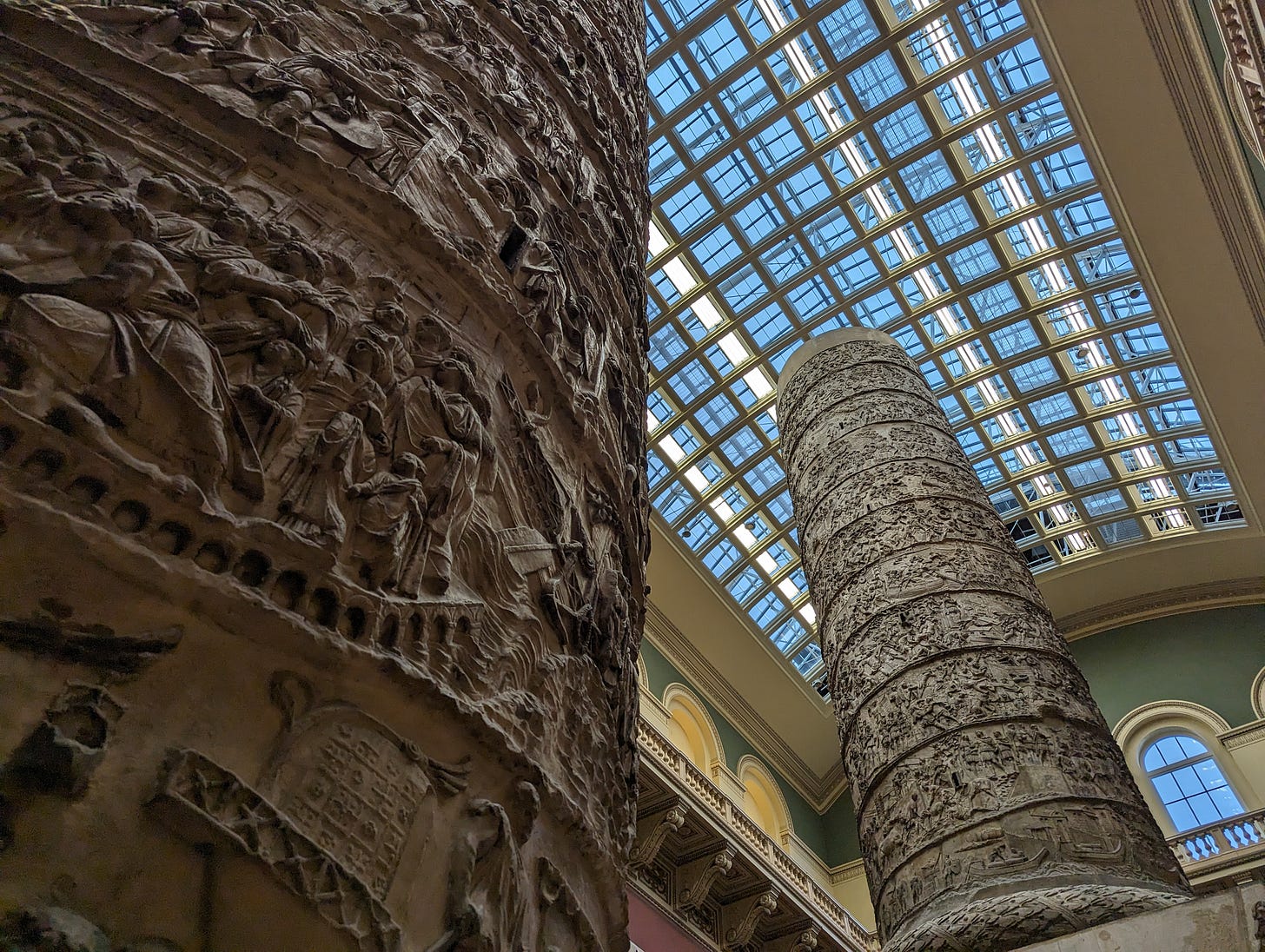











great images